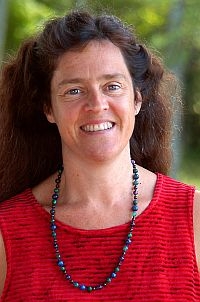 (Host) Fall hunting season is now well underway in Vermont. For commentator Susan Clark, there are few things that highlight the differences between traditional Vermont values and modern sensibilities more provocatively than the sight of a deer carcass on a pick-up. But she finds some lessons that span the divide.
(Host) Fall hunting season is now well underway in Vermont. For commentator Susan Clark, there are few things that highlight the differences between traditional Vermont values and modern sensibilities more provocatively than the sight of a deer carcass on a pick-up. But she finds some lessons that span the divide.
Growing up, my siblings and I heard many stories of my grandfather’s Northeast Kingdom hunting camp.
But hunting stories only came from one side of the family. Like many Vermont communities, my family is a hybrid – a wonderful, inflammatory mix. Dad’s side has been in Vermont for a couple hundred years; on Mom’s side, it’s out-of-staters, all the way back.
Mom taught English. The one strict rule she set was, "Never go anywhere without a book."
But Dad’s strongest suit was not book-learning. I thank him for my old-fashioned Vermont sense of fairness, community service, and love of the outdoors.
So, like many modern Vermonters, we were hearing a mix of messages. But during deer season a few years back, I’m sure my brother David was feeling the pull of his traditional Vermont heritage, as he prepared to bag his first buck.
It was a sunless November day, and David had been hunting since dawn. He was cold, tired and about to give up, when a nice four pointer charged into the clearing.
Two shots and some tracking later, he had his buck. He was feeling not a little pride, and maybe he was even remembering our grandfather – his red wool jacket, the smell of tobacco.
Except now, David was faced with the immediate prospect of having to gut this animal. Grampa had died when we were young, so David hadn’t had the full experience of hunting with his ancestors. He’d only heard the stories.
It’s amazing how it only takes a generation to lose this connection to skills, to tradition, to place. As we spend more time in front of a screen than among maples and hemlocks, more time in our cars than in our communities, we embody one more generation that’s further from our Green Mountain roots. Very quickly our parents’ experience becomes memory, and our own experience, just a dream of what Vermont once was.
So David stood alone in the woods. What other resources could he draw on?
Well, he wasn’t only his father’s son. He’s his mother’s son, too.
"Never go anywhere without a book."
He pulled out a book on how to gut a deer.
Up to his elbows in warm guts and cold mud, he held the book in one bloody hand, and gutted that deer with the other, then went home to feed his family.
Most of Vermont’s proudest heritage has involved messy, hands-on work
Some of it, literally, the gristle of hunting and the smell of agriculture.
But some is messy in other ways. Discussions involving education, affordability, and values at a face-to-face town meeting can get pretty gristly. Community isn’t a simple, pre-packaged commodity. Vermont is a blend of old Yankees and newcomers;. Watever success is in our future, we will have to earn it together.
Somewhere in the muck and blood of real community life – of connecting with home, of local democracy, of sharing traditions with neighbors who aren’t "just like us", lies the future of Vermont, if we’re gutsy enough to take it into our hands.